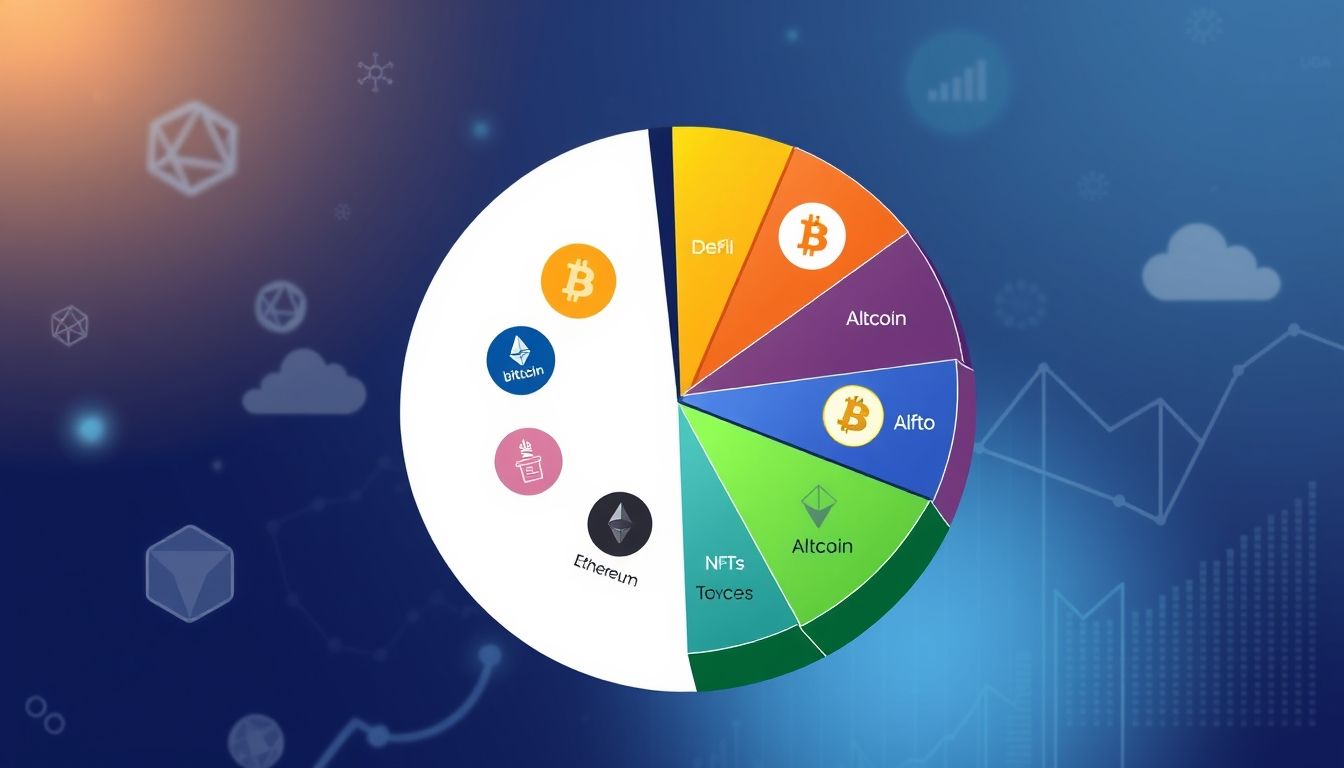مقدمة: الثورة الرقمية والمال في العالم العربي
يشهد القطاع المالي العالمي ثورة رقمية شاملة، مدفوعة بالابتكارات في مجال التكنولوجيا المالية (FinTech) وظهور العملات الرقمية. هذه التغيرات لا تؤثر فقط على طريقة تعامل الأفراد والشركات مع الأموال، بل تمتد لتشمل دور البنوك المركزية وأنظمة الدفع التقليدية. في هذا السياق، تبرز أهمية فهم مستقبل الأموال الرقمية والبنوك المركزية العربية، وكيف يمكن لهذه المؤسسات التكيف مع هذا الواقع الجديد والاستفادة منه.
الفصل الأول: نظرة عامة على الأموال الرقمية وأنواعها
الأموال الرقمية هي تمثيل رقمي للقيمة، يمكن تداوله إلكترونياً. تشمل هذه الأموال مجموعة واسعة من الأصول، بما في ذلك:
- العملات المشفرة (Cryptocurrencies): مثل Bitcoin و Ethereum، تعتمد على تقنية البلوك تشين وتتميز باللامركزية.
- العملات الرقمية للبنوك المركزية (CBDCs): هي عملات رقمية تصدرها وتدعمها البنوك المركزية، وتعتبر نسخة رقمية من العملات الورقية التقليدية.
- العملات المستقرة (Stablecoins): هي عملات رقمية مصممة للحفاظ على قيمة ثابتة نسبياً، وغالباً ما تكون مدعومة بأصول احتياطية مثل الدولار الأمريكي.
كل نوع من هذه الأموال الرقمية له خصائصه الفريدة ومخاطره المحتملة، ويتطلب فهمًا عميقًا قبل اعتماده أو استخدامه.
الفصل الثاني: دوافع البنوك المركزية العربية نحو تبني الأموال الرقمية
تتجه البنوك المركزية العربية نحو استكشاف واعتماد الأموال الرقمية لعدة أسباب رئيسية:
- تحسين كفاءة أنظمة الدفع: يمكن للأموال الرقمية تسريع عمليات الدفع وتقليل التكاليف المرتبطة بها.
- تعزيز الشمول المالي: يمكن للأموال الرقمية الوصول إلى شرائح سكانية لا تتعامل مع البنوك التقليدية، مما يعزز الشمول المالي.
- مواكبة التطورات التكنولوجية: تسعى البنوك المركزية إلى مواكبة التطورات التكنولوجية في القطاع المالي والحفاظ على مكانتها في النظام المالي العالمي.
- مكافحة غسل الأموال وتمويل الإرهاب: يمكن للأموال الرقمية التي تصدرها البنوك المركزية أن توفر شفافية أكبر في المعاملات المالية، مما يساعد في مكافحة الجرائم المالية.
الفصل الثالث: التحديات التي تواجه البنوك المركزية العربية في تبني الأموال الرقمية
على الرغم من الفوائد المحتملة، تواجه البنوك المركزية العربية العديد من التحديات في تبني الأموال الرقمية:
- التنظيم والرقابة: تحتاج البنوك المركزية إلى تطوير أطر تنظيمية ورقابية شاملة للأموال الرقمية لضمان سلامة النظام المالي وحماية المستهلكين.
- الأمن السيبراني: يجب على البنوك المركزية حماية أنظمة الأموال الرقمية من الهجمات السيبرانية والاختراقات الأمنية.
- التكامل مع الأنظمة القائمة: يجب على البنوك المركزية دمج الأموال الرقمية مع الأنظمة المالية القائمة بسلاسة لتجنب أي اضطرابات.
- التوعية والتثقيف: يجب على البنوك المركزية توعية الجمهور بمزايا ومخاطر الأموال الرقمية لضمان استخدامها بشكل مسؤول.
الفصل الرابع: تجارب عالمية في إصدار العملات الرقمية للبنوك المركزية (CBDCs)
العديد من الدول حول العالم تخطط لإصدار عملات رقمية للبنوك المركزية أو بدأت بالفعل في تنفيذها. من بين هذه الدول:
- الصين: تختبر الصين اليوان الرقمي (e-CNY) على نطاق واسع في مدن مختلفة.
- جزر البهاما: أطلقت جزر البهاما عملتها الرقمية "ساند دولار" في عام 2020.
- نيجيريا: أطلقت نيجيريا عملتها الرقمية "إي نايرا" في عام 2021.
يمكن للبنوك المركزية العربية الاستفادة من هذه التجارب العالمية في تصميم وتنفيذ عملاتها الرقمية الخاصة.
الفصل الخامس: تأثير الأموال الرقمية على القطاع المصرفي التقليدي في العالم العربي
من المتوقع أن يكون للأموال الرقمية تأثير كبير على القطاع المصرفي التقليدي في العالم العربي. قد يؤدي تبني الأموال الرقمية إلى:
- زيادة المنافسة: قد تواجه البنوك التقليدية منافسة متزايدة من الشركات الناشئة في مجال التكنولوجيا المالية التي تقدم خدمات مالية رقمية مبتكرة.
- تغيير نماذج الأعمال: قد تضطر البنوك التقليدية إلى تغيير نماذج أعمالها للتكيف مع الواقع الجديد والتركيز على الخدمات الرقمية.
- تقليل الاعتماد على الفروع: قد يؤدي استخدام الأموال الرقمية إلى تقليل الاعتماد على الفروع المصرفية التقليدية وزيادة الاعتماد على القنوات الرقمية.
الفصل السادس: دور التكنولوجيا المالية (FinTech) في تعزيز تبني الأموال الرقمية
تلعب شركات التكنولوجيا المالية (FinTech) دورًا حيويًا في تعزيز تبني الأموال الرقمية من خلال:
- تطوير تطبيقات وخدمات مبتكرة: تقدم شركات التكنولوجيا المالية تطبيقات وخدمات مبتكرة تسهل استخدام الأموال الرقمية وتجعلها أكثر جاذبية للمستهلكين.
- توفير حلول دفع رقمية: تقدم شركات التكنولوجيا المالية حلول دفع رقمية متكاملة تدعم الأموال الرقمية وتسهل عمليات الدفع عبر الإنترنت والهاتف المحمول.
- تطوير البنية التحتية اللازمة: تساهم شركات التكنولوجيا المالية في تطوير البنية التحتية اللازمة لدعم الأموال الرقمية، مثل منصات التداول ومحافظ العملات الرقمية.
الفصل السابع: الفرص الاستثمارية في مجال الأموال الرقمية في العالم العربي
يوفر مجال الأموال الرقمية فرصًا استثمارية واعدة في العالم العربي، بما في ذلك:
- الاستثمار في شركات التكنولوجيا المالية: يمكن للمستثمرين الاستثمار في شركات التكنولوجيا المالية الناشئة التي تعمل في مجال الأموال الرقمية.
- الاستثمار في العملات المشفرة: يمكن للمستثمرين شراء العملات المشفرة وتداولها في البورصات الرقمية.
- الاستثمار في البنية التحتية للأموال الرقمية: يمكن للمستثمرين الاستثمار في الشركات التي تعمل على تطوير البنية التحتية اللازمة لدعم الأموال الرقمية.
الفصل الثامن: المخاطر المرتبطة بالاستثمار في الأموال الرقمية وكيفية إدارتها
ينطوي الاستثمار في الأموال الرقمية على مخاطر كبيرة، بما في ذلك:
- تقلبات الأسعار: تتميز أسعار العملات المشفرة بتقلبات كبيرة، مما قد يؤدي إلى خسائر كبيرة للمستثمرين.
- الاحتيال والاختراق: تتعرض منصات تداول العملات الرقمية ومحافظ العملات الرقمية لخطر الاحتيال والاختراق، مما قد يؤدي إلى فقدان الأموال.
- التنظيم غير الواضح: لا يزال التنظيم الخاص بالأموال الرقمية غير واضح في العديد من الدول، مما يزيد من المخاطر القانونية والتنظيمية.
لإدارة هذه المخاطر، يجب على المستثمرين:
- إجراء البحوث اللازمة: يجب على المستثمرين إجراء البحوث اللازمة قبل الاستثمار في أي عملة رقمية أو شركة تكنولوجيا مالية.
- تنويع الاستثمارات: يجب على المستثمرين تنويع استثماراتهم في مجال الأموال الرقمية لتقليل المخاطر.
- استخدام محافظ آمنة: يجب على المستثمرين استخدام محافظ آمنة لتخزين عملاتهم الرقمية.
الفصل التاسع: مستقبل التنظيم والرقابة على الأموال الرقمية في العالم العربي
من المتوقع أن يشهد التنظيم والرقابة على الأموال الرقمية في العالم العربي تطورات كبيرة في السنوات القادمة. من المحتمل أن تقوم البنوك المركزية العربية بـ:
- إصدار قوانين ولوائح جديدة: من المتوقع أن تصدر البنوك المركزية العربية قوانين ولوائح جديدة تنظم استخدام الأموال الرقمية وتحمي المستهلكين.
- التعاون الإقليمي والدولي: من المتوقع أن تتعاون البنوك المركزية العربية مع بعضها البعض ومع المنظمات الدولية لتطوير معايير تنظيمية موحدة للأموال الرقمية.
- تطوير أدوات رقابية جديدة: من المتوقع أن تطور البنوك المركزية العربية أدوات رقابية جديدة لمراقبة استخدام الأموال الرقمية ومنع الجرائم المالية.
الفصل العاشر: الخلاصة والتوصيات
مستقبل الأموال الرقمية والبنوك المركزية العربية واعد، ولكنه يتطلب تخطيطًا دقيقًا وتنفيذًا فعالًا. يجب على البنوك المركزية العربية:
- الاستثمار في البحث والتطوير: يجب على البنوك المركزية العربية الاستثمار في البحث والتطوير لفهم أفضل للأموال الرقمية وتطبيقاتها المحتملة.
- التعاون مع القطاع الخاص: يجب على البنوك المركزية العربية التعاون مع شركات التكنولوجيا المالية والشركات الأخرى في القطاع الخاص لتطوير حلول مبتكرة للأموال الرقمية.
- توعية الجمهور: يجب على البنوك المركزية العربية توعية الجمهور بمزايا ومخاطر الأموال الرقمية لضمان استخدامها بشكل مسؤول.
من خلال اتخاذ هذه الخطوات، يمكن للبنوك المركزية العربية الاستفادة من الفرص التي توفرها الأموال الرقمية وتعزيز النمو الاقتصادي والشمول المالي في المنطقة.
"تكنولوجيا البلوك تشين لديها القدرة على تغيير الطريقة التي نتعامل بها مع المال والأعمال." - صندوق النقد الدولي
| العملة الرقمية | القيمة السوقية (مليار دولار) |
|---|---|
| Bitcoin | 1200 |
| Ethereum | 400 |
| Tether | 80 |




